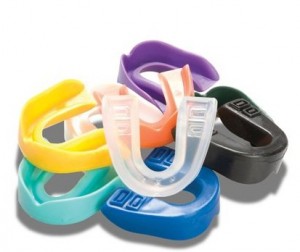Dental Injuries

Tumbles, falls and bangs are all a part of childhood. At times these accidents can lead to damage to teeth – around 1 in 11 children in Ireland will have broken at least one of their permanent teeth by the age of 15 years.
Prevention
Most injuries happen during normal everyday play – prevention in these cases is very difficult
Prevention is possible during organised sports. The wearing of mouthguards and/or a helmet with a face shield during training and games is advisable – and for rugby and GAA activities – mandatory.
Safety helmets are advisable when cycling or skateboarding as are restraints such as safety belts when travelling in a car or buggy.
First Aid
It is unlikely that a dentist will be present when a dental trauma occurs – especially as most injuries occur in and around the home.
Don’t panic.
Rule out head and or other injuries and try to assess the dental injury.
Seek dental advice as soon as possible.
With the exception of a knocked-out permanent tooth, the long-term prognosis of dental injuries is not affected as long as a dentist provides the appropriate treatment within 24 hours.
When a permanent tooth is knocked out:
Time is important with this type of injury – emergency treatment at the scene of the accident will improve the prognosis of the tooth.
1. As above – make sure that there are no other injuries.
2. Locate the tooth & hold it by the crown (white part normally seen in the mouth)
3. Avoid over handling the root.
4. If the tooth is dirty, wash it briefly (10 s) using milk or cold running water.
5. Holding the tooth by the crown, replant it in the socket taking care to orientate it correctly (ie facing the right way). The teeth on either side can be used a guide.
6. Hold the tooth in place – if the child is unable to do so with constant pressure then an adult may have to assist – until a dentist places a splint.
7. If the tooth cannot be replanted immediately place in milk and attend the dentist as soon as possible.

 Clonmel Children’s Dental Clinic is the dental practice of Dr. Eimear Norton. We provide specialized dentistry for children and adolescents in a child-friendly environment.
Clonmel Children’s Dental Clinic is the dental practice of Dr. Eimear Norton. We provide specialized dentistry for children and adolescents in a child-friendly environment.